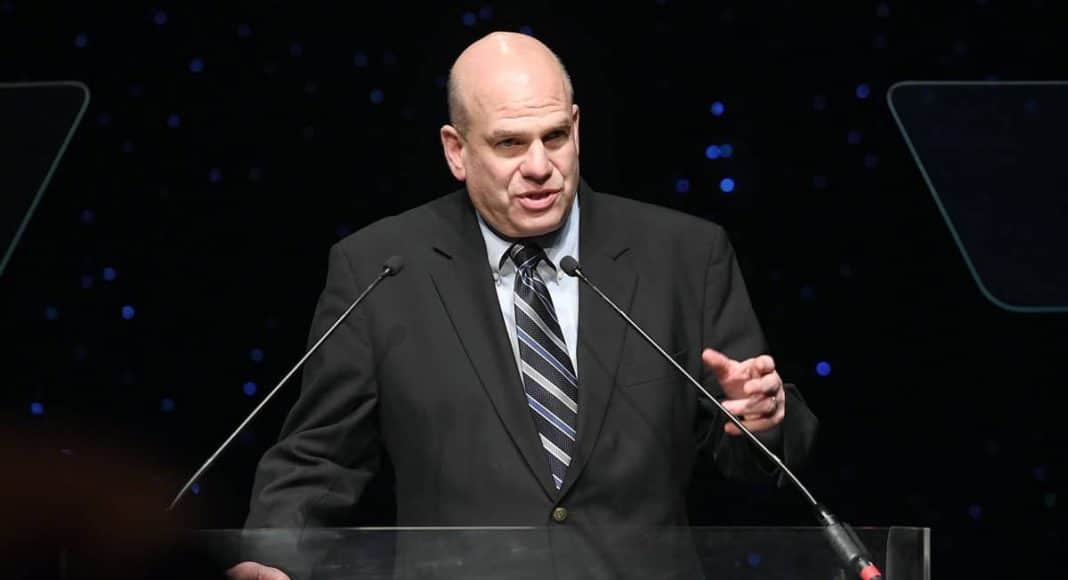It’s no secret that David Simon, the creator, executive producer and writer for HBO’s groundbreaking series “The Wire,” believes the War on Drugs has been a massive failure.
For Simon, a former crime reporter for the Baltimore Sun, marijuana regulation is, above all, a social justice issue. In 2014, he wrote:
Certainly, marijuana enforcement is an opportunity for law enforcement to profile, harass and penalize minorities. And certainly, a marijuana arrest can be used to establish a criminal history, achieve probationary verdicts and put people of color under the control of the criminal justice system. To the extent that defendants opt for suspended sentences and then are rearrested, or find themselves arrested in that minority of states with retrograde marijuana codes, incarcerative outcomes do occur.
Later this month, Simon will be awarded The Denver Press Club’s Damon Runyon Award, named after the celebrated Prohibition-era journalist. In an interview with the Denver Post, Simon discussed journalism, politics and a host of other issues.
In the Post interview, Simon had this to say about marijuana legalization:
Q: You’ve railed against what you see as the futility of the drug war, but it seems a lot of “regular people” are just now waking up to the ravages of heroin, for example, because they can’t ignore it. Since Colorado was the first state to legalize recreational marijuana, how do you see that trend advancing nationally?
A: You tell me. Is (Colorado’s) Oxycontin use up over other states, or is there any appreciable difference since marijuana was legalized? That’s the primary argument against the liberalization of marijuana: that it’s a gateway drug to other things. Even though, yes, all the rummies drinking rye down by the Cross Street Market, 94 percent of them started with a beer. So is beer a gateway drug? On some level, 94 percent of all murderers who picked up a gun probably had a traffic ticket. Do traffic violations pose the inevitable route to violent crime? There’s a specious equivocation we were sold for 50 to 60 years of the drug war. People who have compulsive disorders are going to struggle with addiction regardless of where they begin, whether it’s caffeine or a beer or a barbiturate. They’re going where they’re going unless it’s interrupted in some definitive way externally. The (anti-marijuana forces) are ignoring the fact that millions upon millions upon millions have used it recreationally and haven’t become drug addicted in the same way that millions have used alcohol and not become drug addicts. So I’m really dubious on the gateway drug part of it.
Q: And certainly, you’ve said in the past that the drug war is as much about social and cultural control as it is about public health or safety.
A: The reason we have the drug war is to police our feared other, and not necessarily to police dangerous drugs or drugs that do the most harm, or we wouldn’t be chasing marijuana, we’d be chasing Anheuser-Busch and R.J. Reynolds. On the other hand, I have a counter-intuitive argument against what Colorado did, which has nothing to do with my concerns about marijuana. And I’m sort of alone in this, but I see this as being political inevitably: If we could get marijuana separate from the drug war, this country would allow the police and prison system to beat the (crap) out of brown people and poor white people disproportionately. Once middle-class white kids can get their high legally, it’s like the military getting rid of the draft. We weren’t taking kids of opportunity, so wars of choice became much more viable with a volunteer army. The military’s never going back to a draft because it’s given them much more credibility to fight even interminable wars of attrition as long as everybody’s there of their own volition. White, middle-class kids stopped protesting wars on campus once they weren’t vulnerable to fighting them. The opposition to the drug war should be comprehensive and should have a real, sustained sense of how laws are used disproportionately on black kids. If you’re really serious about addressing this nightmare, the totality of it, it’s probably a bad idea to be looking at marijuana separately, but not meth or heroin.
[gravityform id=”13″ title=”false” description=”true”]


